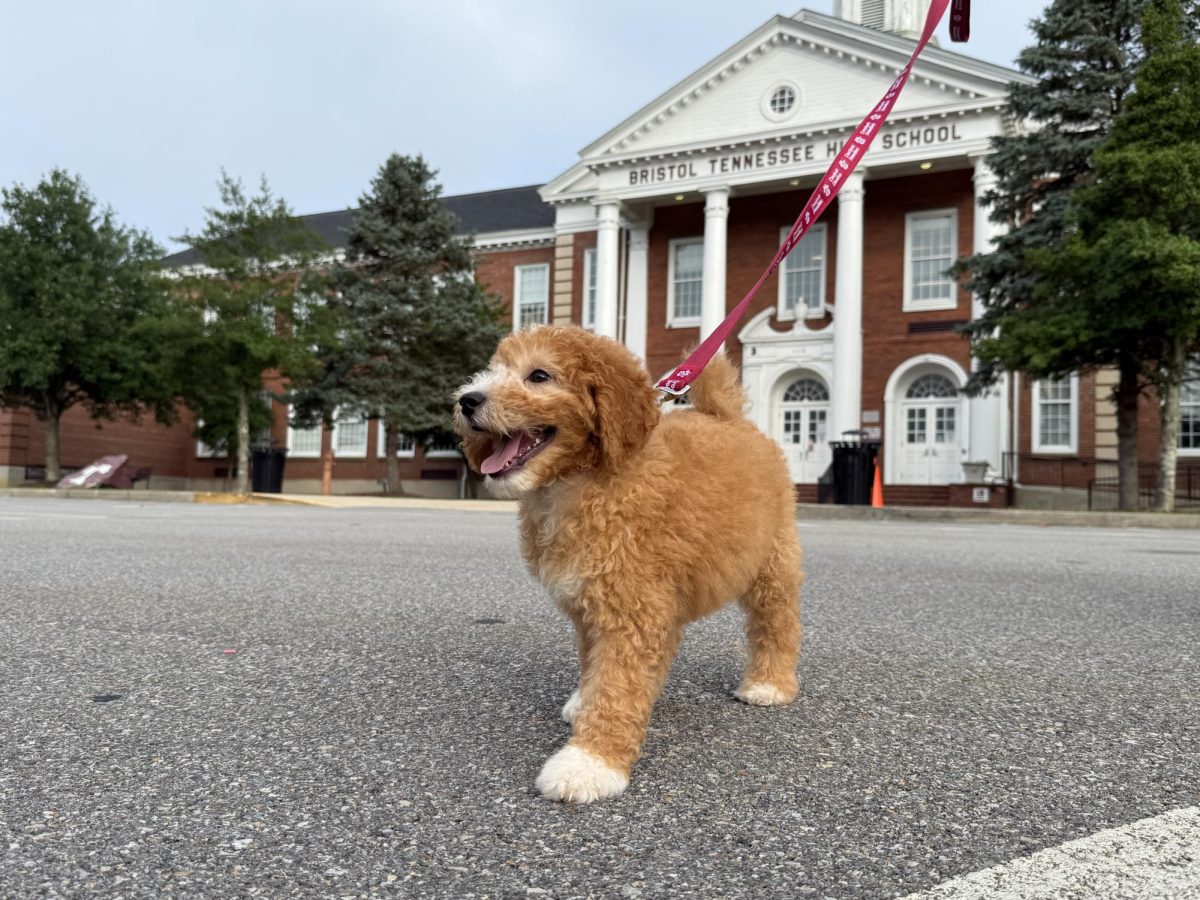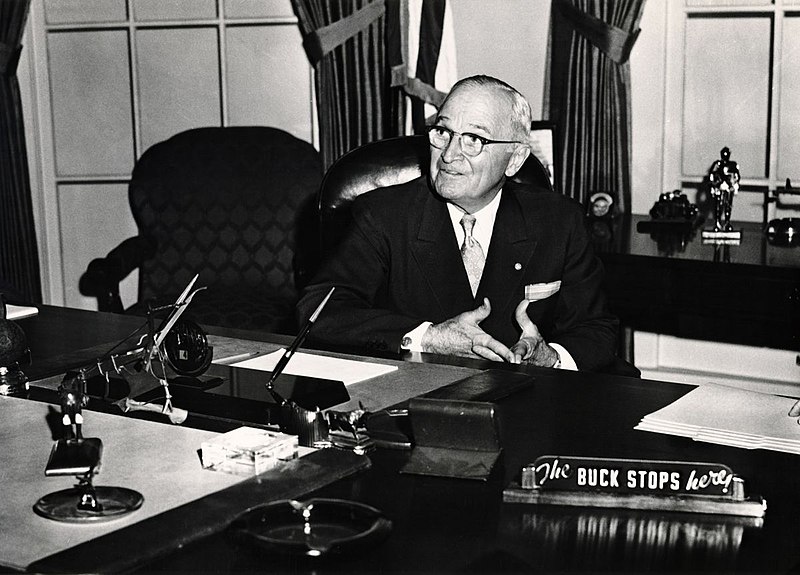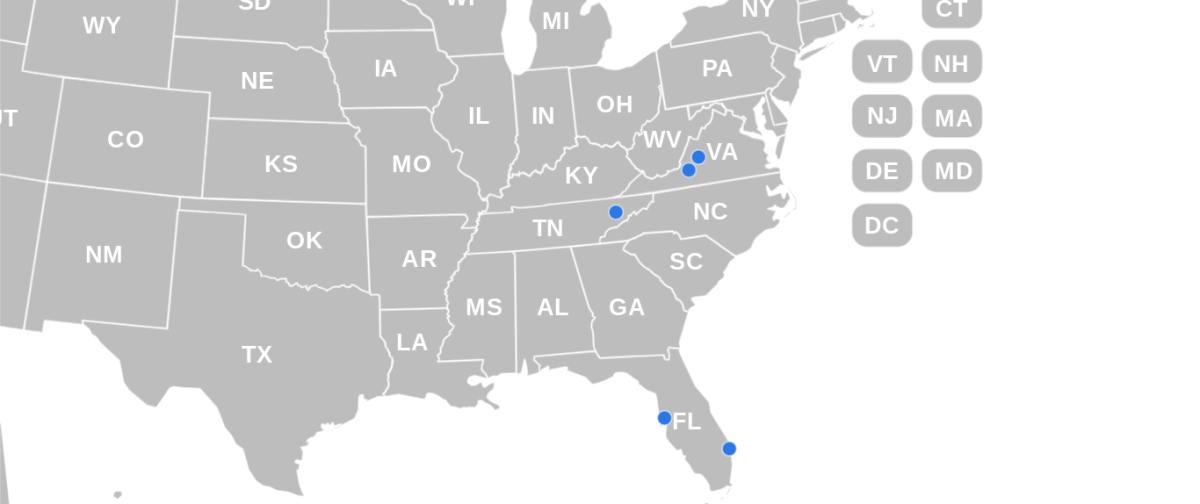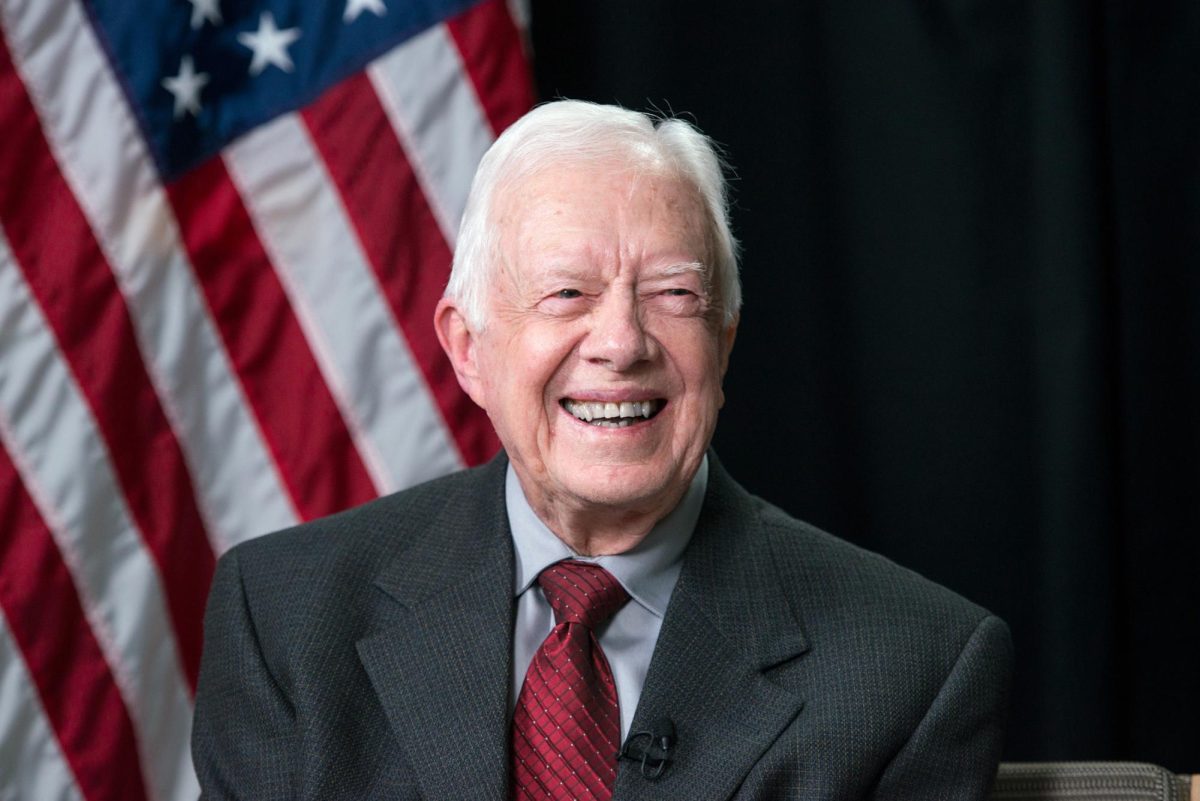In the late afternoon of December 29, 2024, 39th President Jimmy Carter died after an almost two-year term in hospice care. The only centenarian president, Carter’s life and legacy is defined by both his four years as chief executive and his decades of humanitarian service outside of the White House.
Carter was born in the small farming town of Plains, Georgia in 1924. He helped his father operate the family farm throughout his childhood before being appointed to the United States Naval Academy in 1943. There, he began to date Rosalynn Smith, a friend of his sister.
After three years of courtship, Smith accepted Carter’s marriage proposal. Their marriage of 77 years was the longest of any president and first lady in history.
When Carter’s father died in 1953, he resigned from the Navy and was tasked with operating the farming business. Although he developed it into a stable enterprise, his political ambitions would soon take priority in his life.
After narrowly winning election to the Georgia State Senate in 1962, Carter ran a failed bid for Governor in the state in 1966. However, he returned four years later to win the gubernatorial election of 1970. As Governor, he promoted an end to racial discrimination and sought to reform government spending. Ineligible for a second term in 1974, Carter’s political aspirations rose to a national scale.
Just under a month before leaving the office of Governor, Carter announced that he was running for president in the 1976 election. In the wake of the Watergate scandal, many voters were attracted to Carter’s lack of Washington D.C. connections and his perceived openness and honesty.
He won the crowded Democratic primary in a major upset against his initially more notable competitors, ultimately unseating incumbent Republican President Gerald Ford in the November election.
The nation had been facing numerous challenges in the years leading up to Carter’s presidency. Economically, inflation had been rising in the years leading up to his presidency and GDP suffered from weak growth, a phenomenon known as stagflation.
Tensions with the Soviet Union remained high despite the efforts of Presidents Ford and Richard Nixon. Furthermore, Nixon’s role in the Watergate scandal evaporated many Americans’ trust in politics.
After taking office, Carter sought to rectify those issues that plagued the previous administrations. On his first full day in office, he pardoned those who dodged the Vietnam War draft. He worked with both parties in Congress on tax cuts, deregulation, and the creation of the Department of Education, although he failed to pass a large-scale healthcare bill. Despite his large domestic agenda, foreign affairs would dominate judgement of his presidency.
Carter’s first major act of diplomacy was his controversial return of the Panama Canal to Panama, which was highly criticized by his conservative opponents. His administration was praised for its orchestration of the Camp David Accords between Israel and Egypt, which brought both sides closer to geopolitical peace.
However, in late 1979, compounding crises in the Middle East derailed Carter’s presidency. In November, 52 Americans were taken hostage by Iranian students in Tehran. Just a month later, the Soviet Union invaded Afghanistan, prompting Carter to respond with a grain embargo and a boycott of the 1980 Moscow Olympics.
The twin conflicts caused immense economic and political damage to Carter for the remainder of his term, as the Iran hostages would not be released until his last day in office.
The numerous hardships of his administration tarnished Carter’s image among many Americans. He received the majority of the blame for the country’s perceived economic and international decline, and many of his major speeches, especially his “malaise” speech, did little to inspire hope amongst voters.
As the 1980 election loomed, Carter faced both an internal primary challenge from Senator Ted Kennedy and a strong Republican challenge from Ronald Reagan, who’d nearly been nominated to run against Carter four years prior. Carter faced attacks from both on what they perceived as weak leadership amidst crisis and his inability to lead an economic recovery.
Although Carter handedly beat Kennedy in the Democratic primaries, he lost to Reagan in an electoral landslide in the November election. He left active politics at the conclusion of his term.
Despite his tumultuous presidency, Carter received widespread acclaim for his actions after leaving office. In 1982, he founded The Carter Center, an organization dedicated to international peace, human rights, and democracy.
Moreover, he frequently volunteered with Habitat For Humanity, personally helping to build homes for those in need. His religious faith guided his actions, and he continued to teach Sunday school into his late 90s.
His unending philanthropy, diplomacy, and humanitarian support culminated in him receiving the Nobel Peace Prize in 2008. A testament to his sense of public service, he did not retire from his engagements until his health demanded it in his final years.
The former president’s death has brought tributes from politicians and figures from across the nation, bringing the country together even in a time of political divisiveness. On Carter’s legacy, President-elect Donald Trump said, “[Carter] did everything in his power to improve the lives of all Americans. For that, [all Americans] owe him a debt of gratitude.”
Furthermore, President Joe Biden said, “What I find extraordinary about Jimmy Carter, is that millions of people around the world feel that they lost a friend as well. He lived a life not by words, but by deeds.”
Former President Carter will have a state funeral in Washington on January 9; President Biden has declared that day to be a national day of mourning, and flags will remain at half-mast for 30 days. Biden was chosen over a year ago as a eulogist for Carter’s funeral.
“We’d all do well to try and be a little more like Jimmy Carter,” Biden said.

















